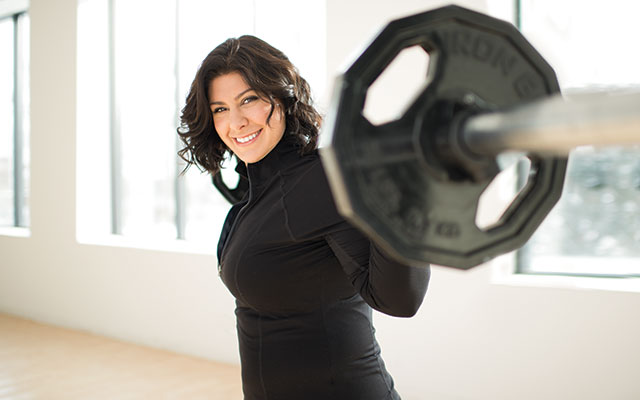Summertime — the living is easy, the barbecues are sizzling and everyone is eager to get home from work so they can go out and play. Now is the time for softball leagues, company picnics and games of flashlight tag with the kids. It’s the season of sharing, community and play. You can see it in nature: Dogs romp, the birds practice singing in choirs, and there is an open, excited energy in the air that strokes the spirit and sets the heart aflutter.
Yet some people seem cut off from the full enjoyment of life. These people keep life events at a distance — they maintain their jobs and responsibilities but can’t muster up the time or energy to become truly involved in their social circles or community. They halfheartedly show up at neighborhood barbecues, and they drone through bedtime stories to their children, but they find little joy in such activities.
Secretly, these people may feel ashamed that they don’t have the enthusiasm to be fully involved in these activities the way they feel they should, or the way their culture tells them they ought to be.
Perhaps you feel this way. Or maybe you’re involved with someone who seems to be holding back.
What prevents some of us from enjoying our life fully? What stops us from participating and enjoying it enthusiastically, especially when we have worked so hard to attain our lifelong dream of family and security?
I call this unconscious habit of not fully participating withholding. The withholding habit can form in childhood, or it can be molded by a bad pattern in a relationship. Wherever it occurs in our life, though, it costs us happiness.
Read on to find out how withholding works, how it blocks excitement and satisfaction — and how breaking through it can bring you the kind of joy that only enthusiastic participation makes possible.
Learning to Participate in Life
Much of what we learn about participation we learn as children. It is almost impossible for young children not to fully participate in every aspect of life. Each moment is a magical doorway into some new experience.
One valuable skill we learn during childhood is how to detach ourselves a bit from our experiences, so that we can begin to evaluate and make sense of them. This is a natural occurrence, and in a balanced environment we learn when we can be fully immersed in our experience and when we can afford to (or should) get some distance from it.
Much of what we learn about participation we learn as children. It is almost impossible for young children not to fully participate in every aspect of life. Each moment is a magical doorway into some new experience.
Unfortunately, most of us do not live in a particularly balanced environment. Too often, our modern culture encourages us to habitually check out of life before we’ve begun to fully experience it.
Television and smart phones, in particular, have taught us how to inhabit the passive part of our minds and to stay out of our own visceral, authentic emotions.
This can happen in the classroom, too, if we aren’t fascinated by the material or regularly engaged in experiential learning. And, of course, it happens at work: If we feel we are punching a clock and going through the motions, we may end up divesting our participation there, too.
Push Me, Pull You
When many of our hours are spent engaged in activities to which we may not be enthusiastically or authentically connected, it may feel like it’s enough (or all we can handle) just to watch events, much as one would watch television, instead of participating.
Humans were never wired to be passive viewers.
But humans were never wired to be passive viewers. Without real, kinesthetic experiences to balance passive “viewing” behaviors, we may wind up disconnected from the very things that could bring us joy.
We may also adopt the “I won’t” style of withholding — in some cases from a very early age. When children feel powerless, they may begin to withhold participation as a form of control. They learn that holding back enjoyment can be extremely powerful. They’ll say, “You can take me to the zoo, but you can’t make me have fun!”
If we resort to this coping mechanism enough, as we grow up we may find that withholding ourselves — from relationships, from love and from life itself — becomes a statement of who we are. What starts out as a simple form of control can wind up becoming an engrained and defining personality trait.
The Hurt Cycle
Who are we really hurting when we resist participating?
The nonparticipant may cause pain to lovers, families and friends when he or she half-heartedly shows up and then withholds, but often it’s the nonparticipant who suffers most.
Here’s a common scenario in a relationship:
The nonparticipant has a bad day or gets annoyed at something his or her partner said or did and begins to withdraw from the relationship as a form of reaction. He or she refuses to play or touch and finds dozens of other little ways not to participate fully in the relationship. This then prompts the partner to begin withholding in other areas.
If someone doesn’t address and change this pattern, at some point both people are withholding so much of themselves that there is nothing left to hang a relationship on. So the relationship breaks up, and the nonparticipant goes on to the next person and starts again. After several relationships like this, the withholder may decide that relationships are just too hard and give up on them altogether.
You may be a withholder, or you may be a person who is attracted to withholders — a wishful thinker.
The wishful partner unconsciously thinks that if he or she gives the withholder more than the person asks for, the withholder will miraculously thaw, showering the partner with love, affection and participation. Since that rarely works, at some point the overly generous giver will begin to withhold too, and they find themselves right back in the scenario described above. Feelings are hurt, judgments are made and relationships end.
Showing Up for Real
How can you turn up your participation level? Here’s a checklist for freeing some of your stuck energy:
Write your feelings.
Often, we cannot participate fully in our own lives, much less in others’, because of emotions held inside that we don’t want to experience. Writing down these feelings is one of the best ways to know what they are and to begin processing them in a healthy way. You don’t have to do anything about them for the time being, just write them down.
Experience your feelings fully.
After you write down how you feel, let yourself participate fully in your emotions for 15 minutes.
For example, if you’re angry with someone, just give yourself permission to “be right,” and to make him or her wrong, for a full 15 minutes (even if you suspect you might really be at fault). When the time is up, see if you get any insights about how you and the person with whom you’re angry may both be right.
Once you’ve felt a full range of emotion and perspective, your withholding will no longer be satisfying.
Examine your reactions.
One source of joy for people who fully participate in life is others’ good fortune. Can you tap into it?
When people have good news or good things happen to them, notice the first feelings that come up for you. Is it sadness that you don’t have the same good luck? Is it anger that you deserve to be getting equally good rewards or results, but aren’t?
If you can’t feel happy for others, those first feelings will give you a clue about why you are unable to participate in their happiness, and may provide an opportunity for you to ask yourself some questions (Why am I not having that experience? What choices might I be making that avert them? etc.).
From there, consider how you can address those issues so that you can better enjoy your own happiness and share in the happiness of others.
(Also see “How to Be Happy for Others” to discover how this can transform your thinking.)
Practice participating.
Pick five minutes a day to participate enthusiastically in something (a conversation, a workout or task).
Make your enthusiasm uncontained; put your whole body into it; really focus and pay attention during those five minutes. What feelings arise? Why?
Be kind to yourself.
You live in a stressful, demanding world that is completely different than the natural rhythms your body is hardwired to understand. If life doesn’t feel fun for you, find ways to make enjoyment a priority. Try it for a day, a week, a year. Seize every opportunity to put pleasure on the front burner and crank up the heat. Then see if your enthusiasm for participation returns. When it does, you will find plenty of playmates waiting for you.
Enjoy the Benefits
Why should anyone strive to be more fully involved in his or her life?
Well, for starters, the more you actively participate in your life with enthusiasm, the more youthful, vital energy will infuse your body. It is as if your inner child is so excited to see what the next day brings that he or she wakes you up bursting with joy and thrilled to be alive.
This is a wonderful feeling to have in your body! And it’s good for it, too. Your immune system will be hardier, your defenses stronger and your ability to bounce back from illness or injury vastly improved.
People love to be around those who are passionate and enthusiastic, so your social life may improve considerably. But best of all, you will get to enjoy the life you have created, and what could be more fun than that?
Participation at a Glance
Before you go to a family gathering, a company party or the big community parade, remind yourself how and why you want to show up completely and participate enthusiastically.
What are the rewards for participating enthusiastically in life?
- Increased vitality and energy
- More awareness of your surroundings; richer interactions
- Satisfaction with your life and your choices
- Enthusiasm is viral in nature — it is contagious!
- Enthusiasm keeps the body young and healthy
How do you know when you are not participating?
- Silently criticizing or judging others
- Holding yourself back when in group activities
- Unable to be fully in the moment.
Insight
If you found this article enjoyable and thought-provoking, we invite you to explore our Insight department for a deeper dive into life-enriching articles on wisdom and introspection.
This article originally appeared as “Show Up!” in the June 2004 issue of Experience Life.




This Post Has 0 Comments